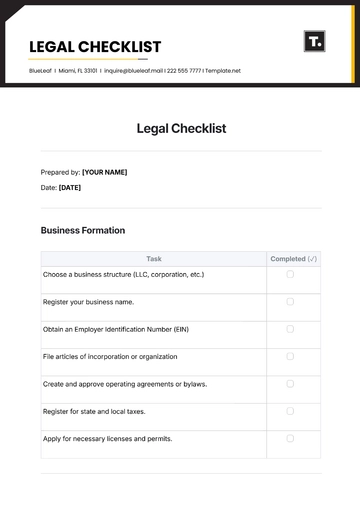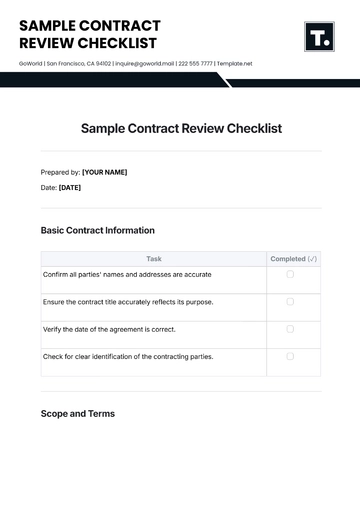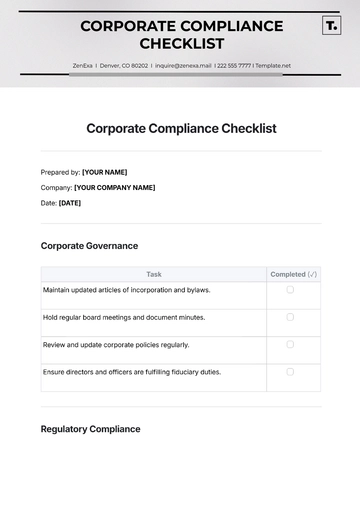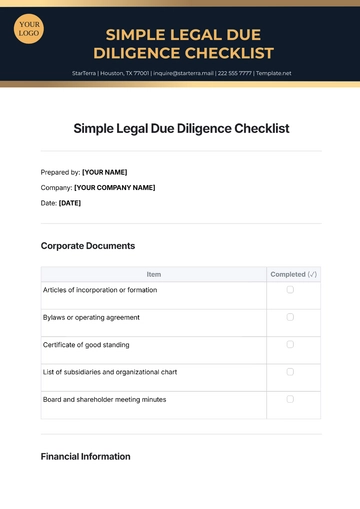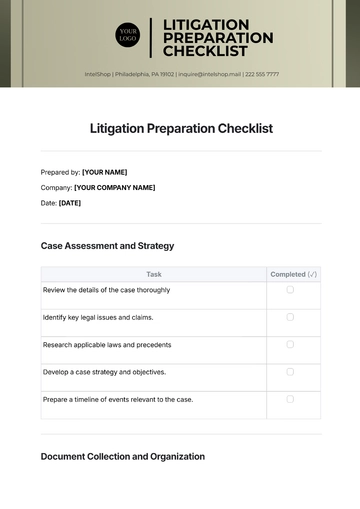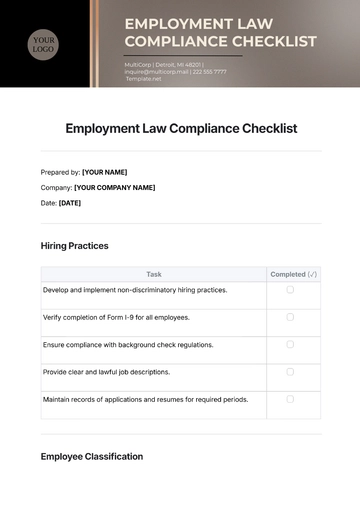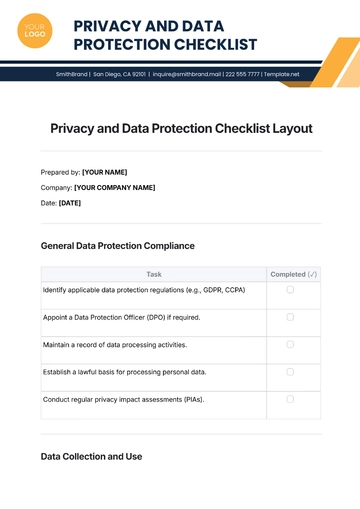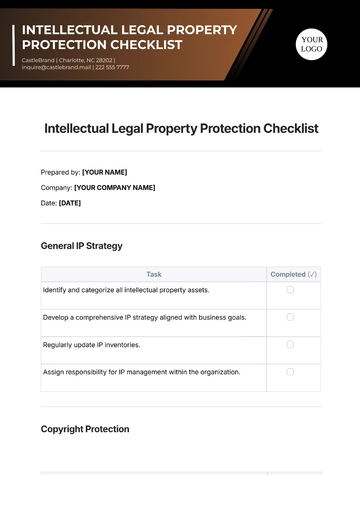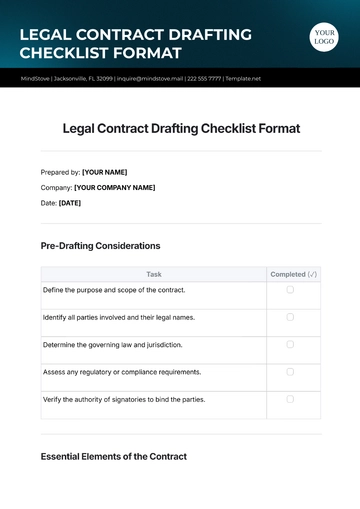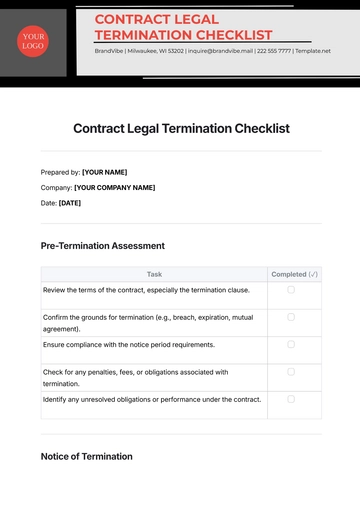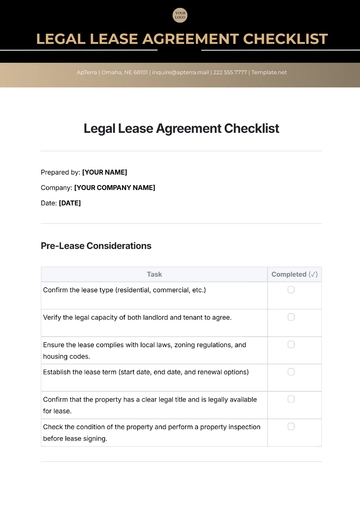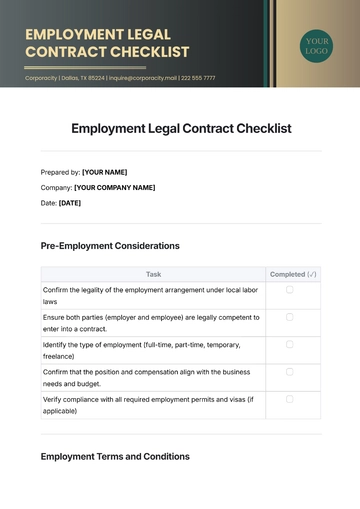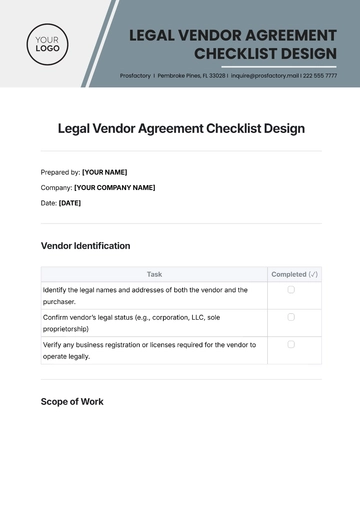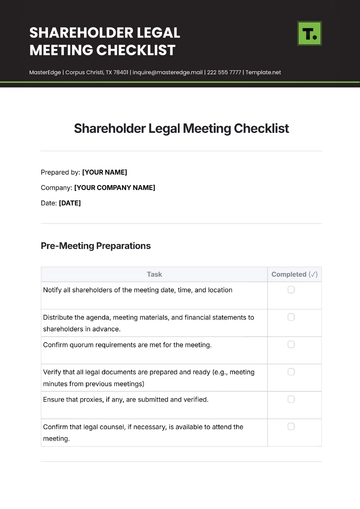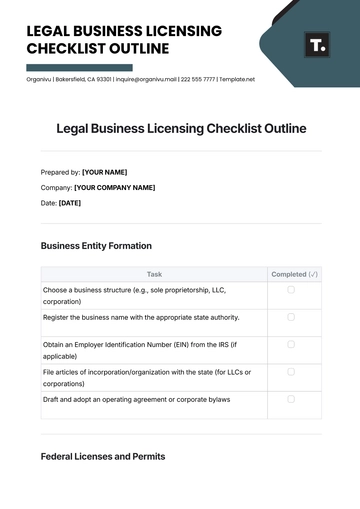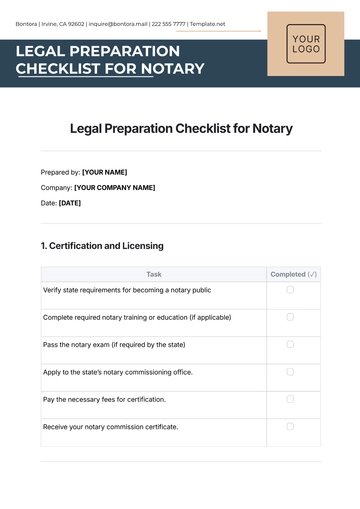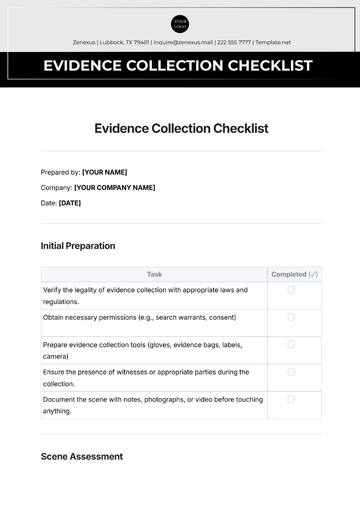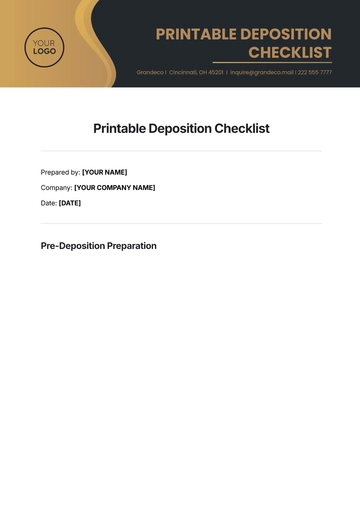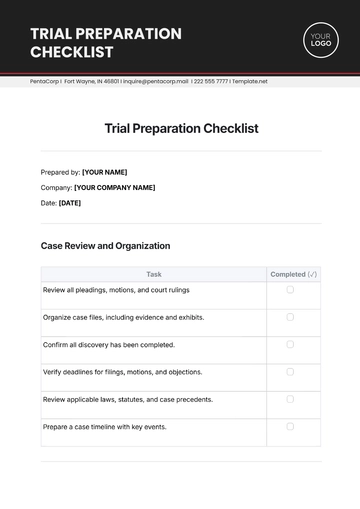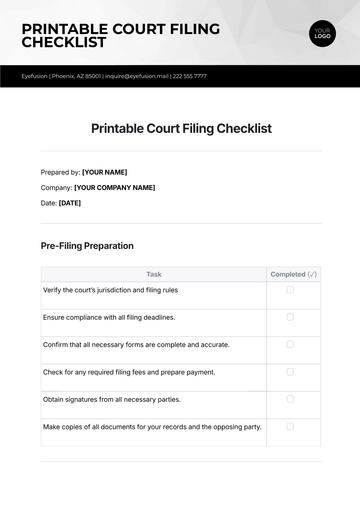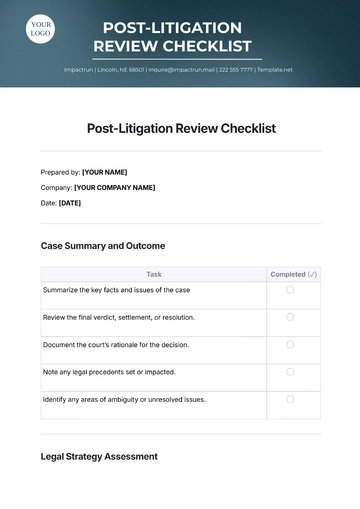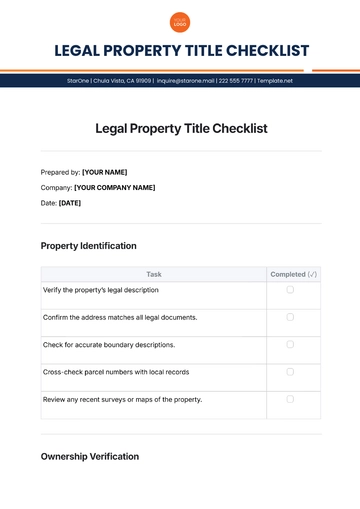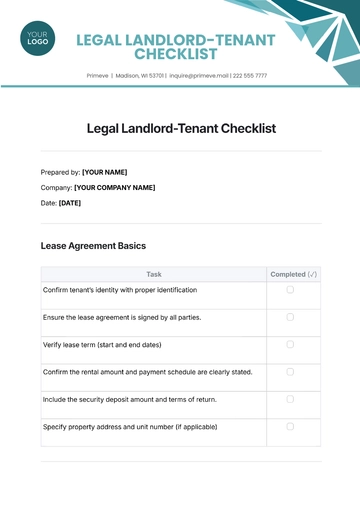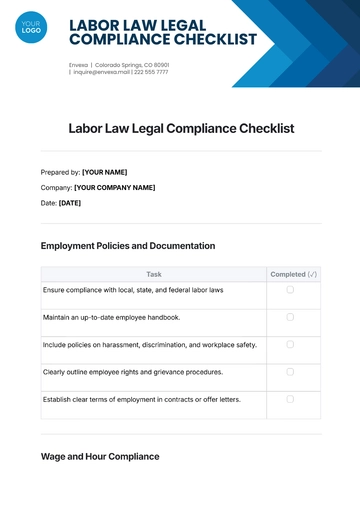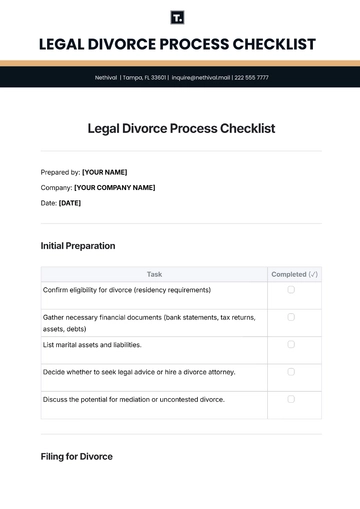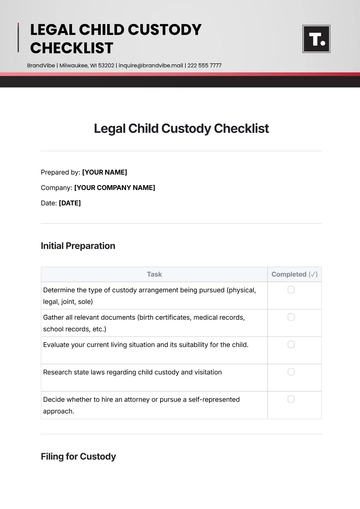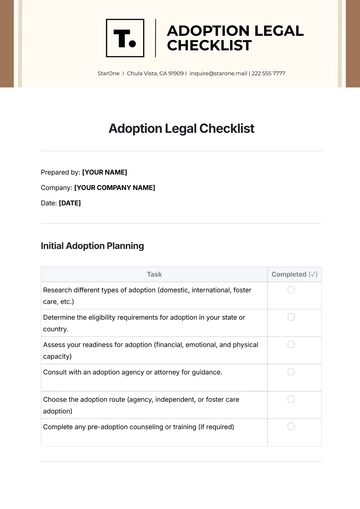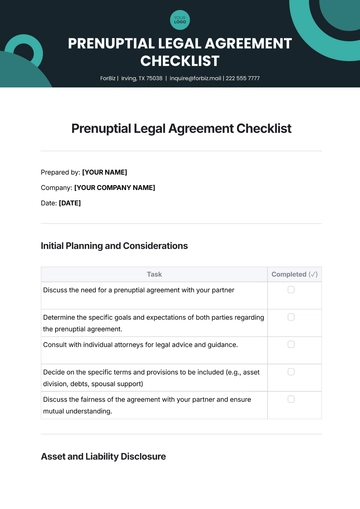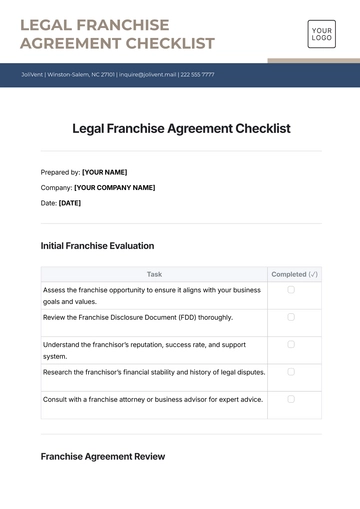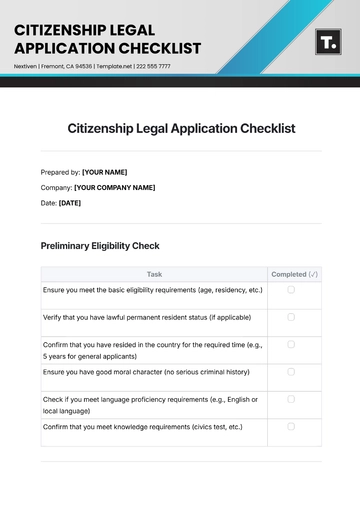Free Law Firm Discovery Checklist
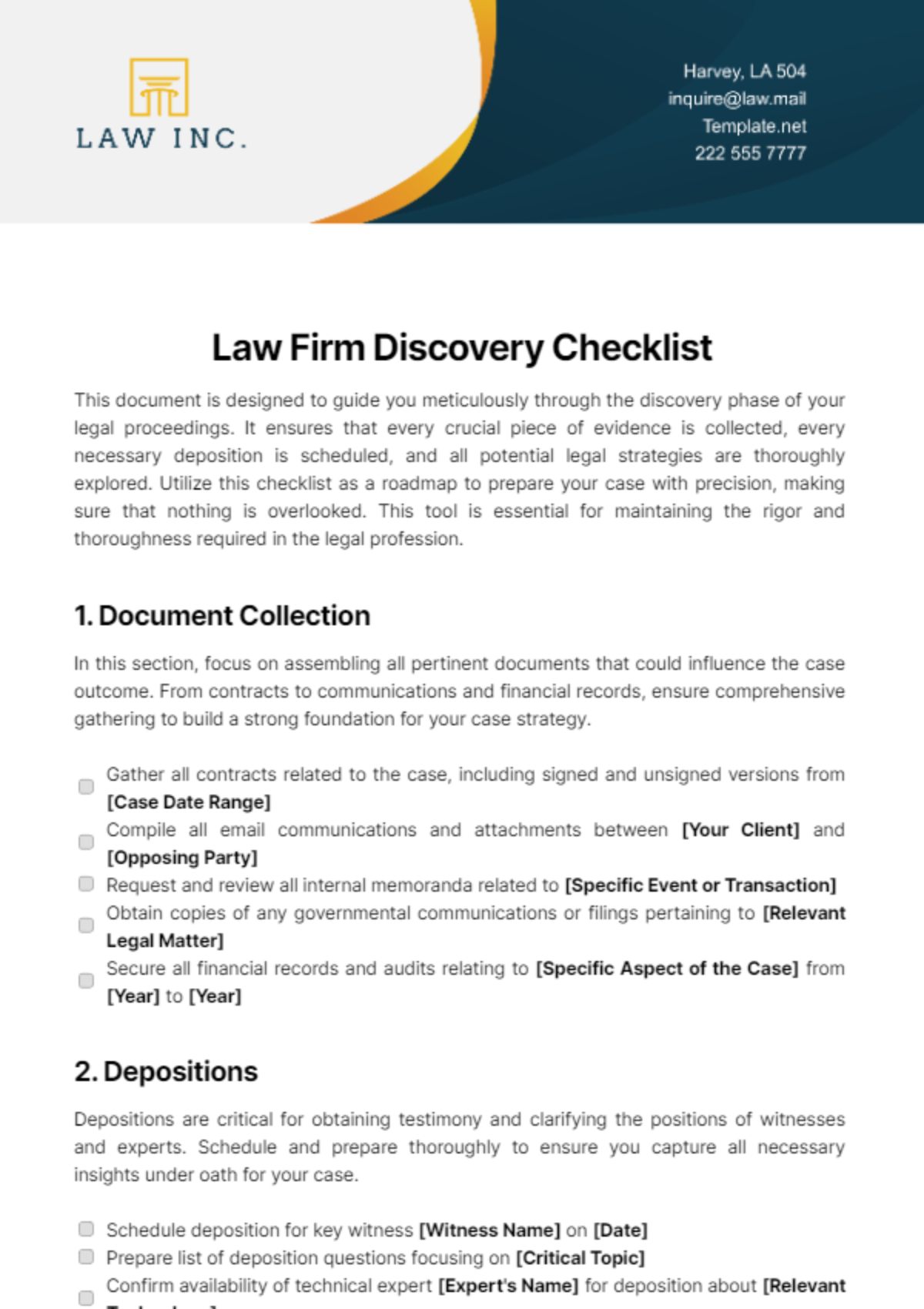
This document is designed to guide you meticulously through the discovery phase of your legal proceedings. It ensures that every crucial piece of evidence is collected, every necessary deposition is scheduled, and all potential legal strategies are thoroughly explored. Utilize this checklist as a roadmap to prepare your case with precision, making sure that nothing is overlooked. This tool is essential for maintaining the rigor and thoroughness required in the legal profession.
1. Document Collection
In this section, focus on assembling all pertinent documents that could influence the case outcome. From contracts to communications and financial records, ensure comprehensive gathering to build a strong foundation for your case strategy.
Gather all contracts related to the case, including signed and unsigned versions from [Case Date Range]
Compile all email communications and attachments between [Your Client] and [Opposing Party]
Request and review all internal memoranda related to [Specific Event or Transaction]
Obtain copies of any governmental communications or filings pertaining to [Relevant Legal Matter]
Secure all financial records and audits relating to [Specific Aspect of the Case] from [Year] to [Year]
2. Depositions
Depositions are critical for obtaining testimony and clarifying the positions of witnesses and experts. Schedule and prepare thoroughly to ensure you capture all necessary insights under oath for your case.
Schedule deposition for key witness [Witness Name] on [Date]
Prepare list of deposition questions focusing on [Critical Topic]
Confirm availability of technical expert [Expert's Name] for deposition about [Relevant Technology]
Organize document exhibits for deposition of [Individual or Company]
Arrange video or transcription services for remote depositions if necessary
3. Requests for Admission
Utilize requests for admission to establish agreed-upon facts and streamline the trial process. This section guides the drafting, sending, and analysis of these crucial documents.
Draft and review request for admission documents addressing [Key Fact or Claim]
Send finalized requests for admission to [Opposing Counsel's Name] before [Deadline Date]
Analyze received admissions for necessary follow-ups or additional inquiries
Coordinate with [Your Department] to ensure all requests are legally compliant and strategically beneficial
Maintain a secure database of all admission requests and responses for quick reference
4. Evidence Categorization and Review
Effective management and categorization of evidence are paramount. This section ensures that all evidence is accounted for, appropriately categorized, and reviewed to support your legal arguments.
Classify evidence based on type, relevance, and importance for easy retrieval during the case
Set up review teams for different categories of evidence including electronic data, physical evidence, and testimonial evidence
Implement a secure, digital management system for all electronic evidence to prevent unauthorized access
Review and update case strategy based on findings from categorized evidence
Schedule regular update meetings with the legal team to discuss progress and insights from evidence review
5. Case Strategy Development
Strategically assembling a case is an art form. This final section focuses on integrating all findings into a cohesive legal strategy, engaging with experts, and preparing for court challenges.
Create a comprehensive case timeline integrating discovered evidence with key milestones and deadlines
Discuss potential legal theories and approaches with senior partners of [Your Company Name]
Identify and prioritize potential motions and their impacts on the trajectory of the case
Engage with expert witnesses to validate case theories and evidence applications
Prepare mock trials and simulations to anticipate opposing arguments and refine our strategies
Prepared by: [Your Name]
Date: [Month Day, Year]
- 100% Customizable, free editor
- Access 1 Million+ Templates, photo’s & graphics
- Download or share as a template
- Click and replace photos, graphics, text, backgrounds
- Resize, crop, AI write & more
- Access advanced editor
Streamline your law firm's discovery process with Template.net's Law Firm Discovery Checklist Template. This editable and customizable product is designed to address the complexities of legal discovery in a resolved manner. Conveniently editable in our Ai Editor Tool, it ensures better organization and efficiency. Enhance your practice today with our professionally crafted, highly compelling checklist template, uniquely designed to cater to your specific needs.
You may also like
- Cleaning Checklist
- Daily Checklist
- Travel Checklist
- Self Care Checklist
- Risk Assessment Checklist
- Onboarding Checklist
- Quality Checklist
- Compliance Checklist
- Audit Checklist
- Registry Checklist
- HR Checklist
- Restaurant Checklist
- Checklist Layout
- Creative Checklist
- Sales Checklist
- Construction Checklist
- Task Checklist
- Professional Checklist
- Hotel Checklist
- Employee Checklist
- Moving Checklist
- Marketing Checklist
- Accounting Checklist
- Camping Checklist
- Packing Checklist
- Real Estate Checklist
- Cleaning Checklist Service
- New Employee Checklist
- Food Checklist
- Home Inspection Checklist
- Advertising Checklist
- Event Checklist
- SEO Checklist
- Assessment Checklist
- Inspection Checklist
- Baby Registry Checklist
- Induction Checklist
- Employee Training Checklist
- Medical Checklist
- Safety Checklist
- Site Checklist
- Job Checklist
- Service Checklist
- Nanny Checklist
- Building Checklist
- Work Checklist
- Office Checklist
- Training Checklist
- Website Checklist
- IT and Software Checklist
- Performance Checklist
- Project Checklist
- Startup Checklist
- Education Checklist
- Home Checklist
- School Checklist
- Maintenance Checklist
- Planning Checklist
- Manager Checklist
- Wedding Checklist
- Vehicle Checklist
- Travel Agency Checklist
- Vehicle Inspection Checklist
- Interior Design Checklist
- Backpacking Checklist
- Business Checklist
- Legal Checklist
- Nursing Home Checklist
- Weekly Checklist
- Recruitment Checklist
- Salon Checklist
- Baby Checklist
- Equipment Checklist
- Trade Show Checklist
- Party Checklist
- Hospital Bag Checklist
- Evaluation Checklist
- Agency Checklist
- First Apartment Checklist
- Hiring Checklist
- Opening Checklist
- Small Business Checklist
- Rental Checklist
- College Dorm Checklist
- New Puppy Checklist
- University Checklist
- Building Maintenance Checklist
- Work From Home Checklist
- Student Checklist
- Application Checklist
